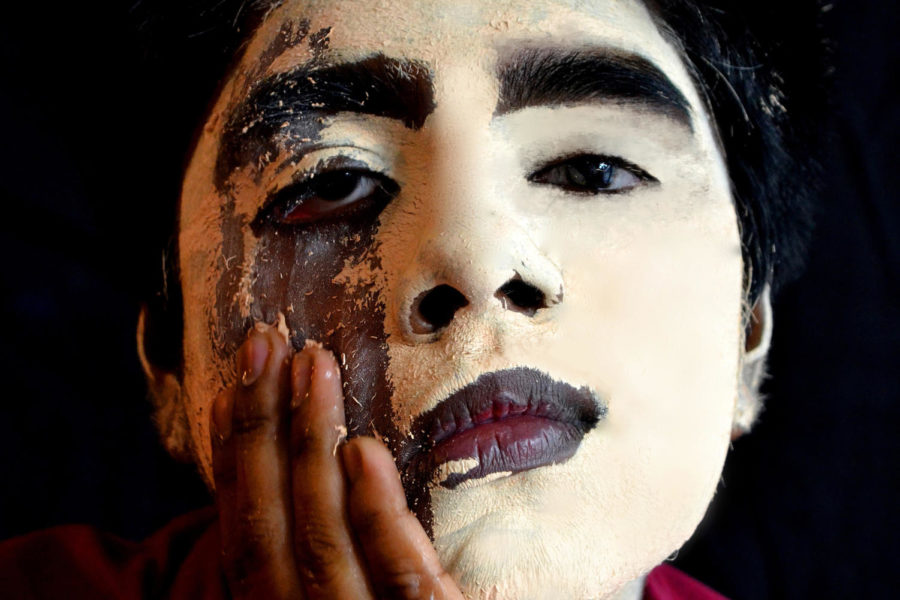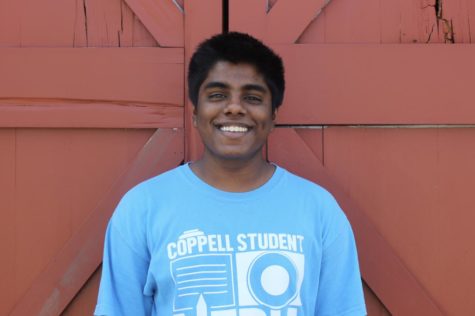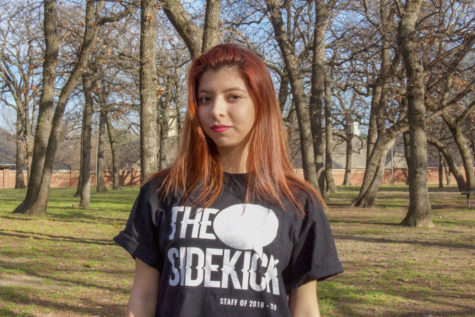The phrase “accept yourself” is more than a cliché
The Sidekick Staff Writer Nishant Medicharla has learned to overcome the remarks that have been made by many in regards to his skin color. Medicharla has learned to agree with the cliché that you should appreciate yourself and be happy with the way you are.
October 26, 2018
Throughout my childhood, I have always wondered what it would feel like to have light skin. How it would feel to be someone other than “dark”?
This thought would always come up partly because I grew up in an Indian society where being “fair” was desired and learned about American history where being white was favored.
This question has always been within me, but as I have grown up and started exploring the world, I have begun to agree with the cliché that you should appreciate yourself for who you are.
The resentment towards the color of my skin started on the annual field day at Mockingbird Elementary School in 2008, when I was in the first grade. A peer came up to me and said “you are the darkest Indian I have ever seen.”
I was completely distraught. I felt like someone ripped my heart open. I honestly do not know why I felt that way. I felt like being dark was an insult. I thought that being the fairest was the way to go.
This was not the last of the remarks I would get about my skin color.
Throughout elementary, middle and even high school, I have been called “Blackie Chan”, “burnt”, “roasted” and sometimes a “slave”.
While some of these remarks came from my friends, some would also come from random people in the school hallways.
But rather than getting hurt by my peers, what got to me the most is how my family reacted to it. Some of my aunts, uncles, even grandparents, would sometimes ask why my skin has gotten so dark. They would say I am always in the sun, or I do not wash my face enough. Sometimes, I would even feel a little bit discriminated by my mom’s side of the family, who are all light-skinned.
One of my closest friends, Coppell High School junior Suprita Ashok, had also encountered some of these problems from her family. Like me, she thinks these family members have good intentions but still feels the emotional pain of such comments.
“As an Indian of darker skin, I have faced a lot of derogatory comments from my peers, and close family members,” Ashok said. “I know they are all really good people and they love me to death, but that does not stop them from using my skin against me. They talk as if it is a problem having darker skin. I love my culture, but I wish some things could be a little progressive”.
While I know my family never tried to offend me, I was frustrated with the fact that being fair was considered handsome and beautiful. Why couldn’t being dark be a type of beauty too?
I used to feel bad about these remarks and would try to do anything to change the color of my skin. I would apply random Indian lighting creams or apply turmeric paste on my face everyday. I was willing to try any product that would lighten my skin.
While some might say I am a boy and should not care about outward appearances, I still desired to look “decent”. I wanted to be tall and fair so that I could gain that recognition.
But after years of strenuous efforts to lighten my skin, I realized none of this would work, because this is how I am made. I have learned to accept myself and shrug off the remarks I still get today. Nowadays, I tell people I am a unique person whenever the subject of my skin color comes up.
Throughout the years, with greater social media presence and inspirations from others just like me, I have learned to embrace the fact that not everything revolves around being the fairest and that everyone has their own type of beauty.
We all should be thankful we have a working body, and we should learn to accept the fact that not everyone will look like what society wants. When everyone comes together with different body types and skin colors, it creates a type of spectrum that allows humanity to connect, and that’s what is really beautiful.
So whenever you hear the cliché to accept yourself or be happy with the way you are, truly take it to the heart. You should not change the way you are for others; others can change their ways for you.
Follow Nishant @Nishantnm1













Ryan Kim • Nov 7, 2018 at 10:04 am
Great story overall, but about the peer talking about your dark skin tone, it feels a bit vague, as it may have been a slightly rude comment, but it would have been nice if it was specified if the comment was made out of malice, as such comments may not always have intention to harm, and can only be seen as an implication to harm. But besides that, great job in bringing up a positive message for everyone reading this article!
Pramika Kadari • Oct 30, 2018 at 11:43 pm
Love this story! It explains such a prominent issue in a way that really makes the readers feel the pain of what you went through.
April Clements • Oct 29, 2018 at 5:49 pm
Excellent story!
Sofia Guerrero • Oct 28, 2018 at 12:24 am
I really love your story, Nishant! It’s really well-written and I agree that we should accept who we are because everyone is beautiful in their own way
Anika Arutla • Oct 26, 2018 at 7:13 pm
This is so heartwarming and speaks a much needed message in today’s society!